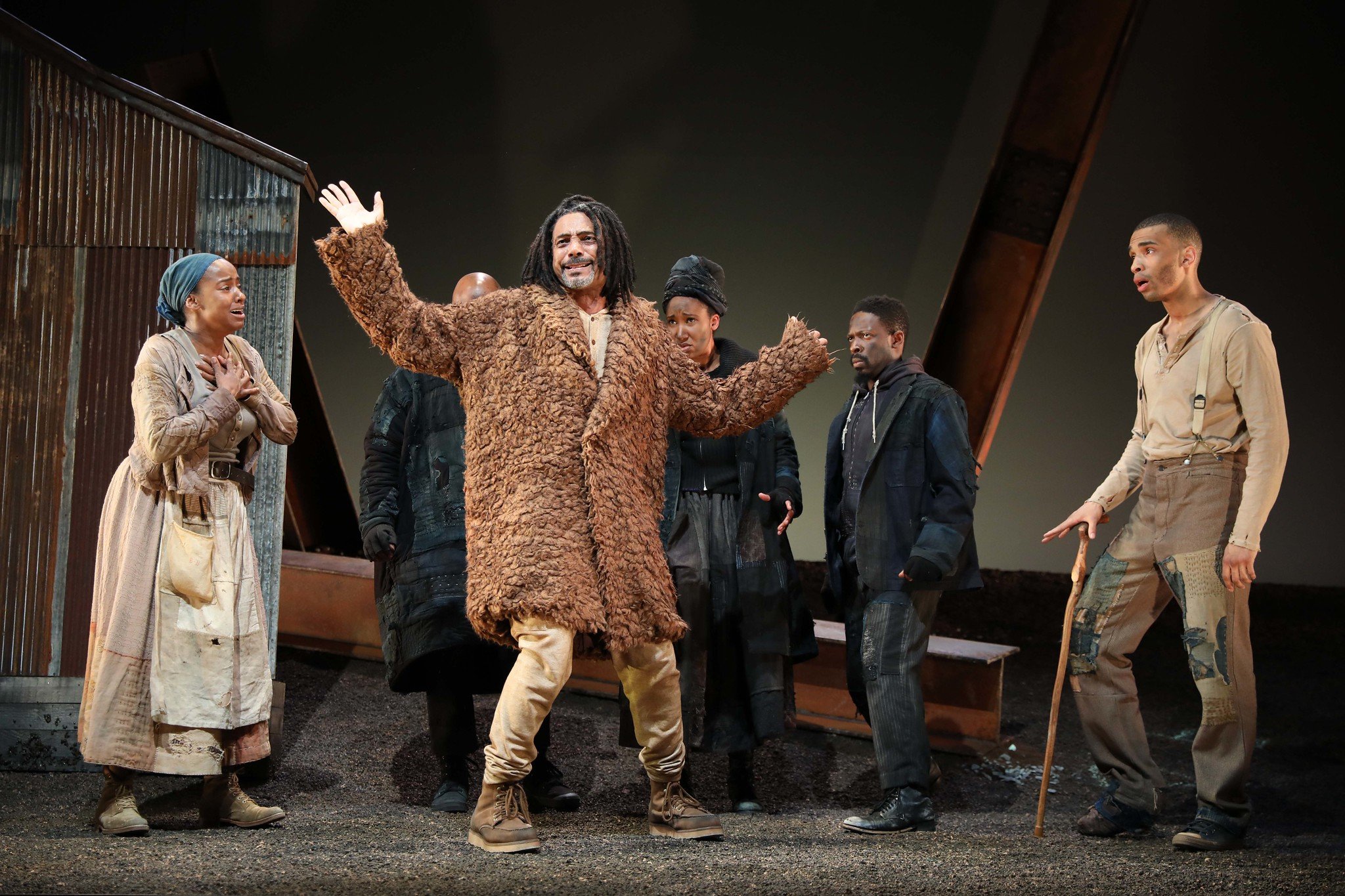
White Noise shocks, ultimately disappoints at Berkeley Rep
Suzan-Lori Parks' White Noise is an intensely interesting play. Just not a very good one.
And that's surprising given that Parks, a Pulitzer Prize-winner, has bent, molded and shaped contemporary theater to her will through sheer force of intelligence, powerful writing and the courage to configure theater as she needs it to be configured.

Parks finds poetry, drama in epic Father
There's some epic myth-making happening on the stage of American Conservatory Theater's Father Comes Home from the Wars (Parts 1, 2 & 3). Playwright Suzan-Lori Parks – one of those great American playwrights whose mere name should always inspire you to check out her work – nods in the direction of other great epics, most notably The Odyssey, but also, as she has said, The Oresteia and The Mahabharata as she tells the story of a slave who reluctantly follows his master into the Civil War.
Porgy sings anew at the Golden Gate
p>The music of Porgy and Bess is so pervasive in the musical landscape that actually seeing the show and how the songs fit into the story is a little startling.
I know the George Gershwin-Ira Gershwin-DuBose Heyward score not from cast recordings but from pop and jazz versions recorded by the likes of Miles Davis, Oscar Peterson and Joe Pass, Ella Fitzgerald and Louis Armstrong, Lena Horne and Harry Belafonte, Sammy Davis, Jr. and Carmen McRae, Cleo Laine and Ray Charles and Frances Faye and Mel Tormé. And then there are the countless covers of the show's songs. "Summertime" is considered one of the most recorded songs of all time, with more than 30,000 versions. This music, in other words, is part of the American cultural fabric.
Productions of Porgy and Bess don't come along very often...
Marin's Topdog makes power plays into powerful play
"Know what is and what ain't," one brother advises another in Suzan-Lori Parks' mesmerizing play Topdog/Underdog. Telling what is from what ain't is a tricky business in this deceptively straightforward play about an older brother named Lincoln and a younger brother named Booth. You don't expect men with those names – chosen by their father, who liked a joke – not to come to blows, and given we see a pistol within the first few minutes of the play, it's not really surprising when Parks goes from contemporary to Greek drama in a single gunshot.
Parks' Topdog won the Pulitzer Prize for Drama in 2002, and shortly after the play's run on Broadway, it stopped in at San Francisco's Curran Theatre, where Parks' extraordinary language, rich with urban slang frothed into gritty poetry and laced with deeply felt emotion, made a huge impression and justified all the fuss being made over the play.